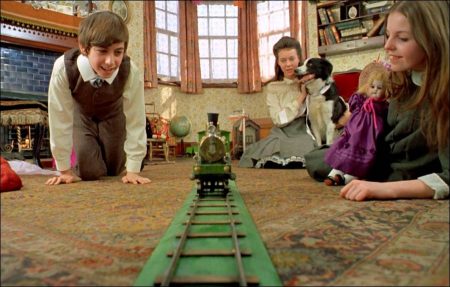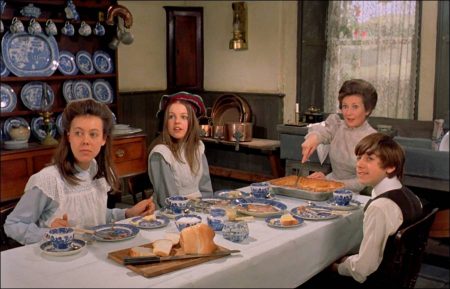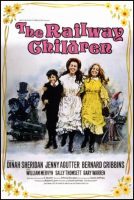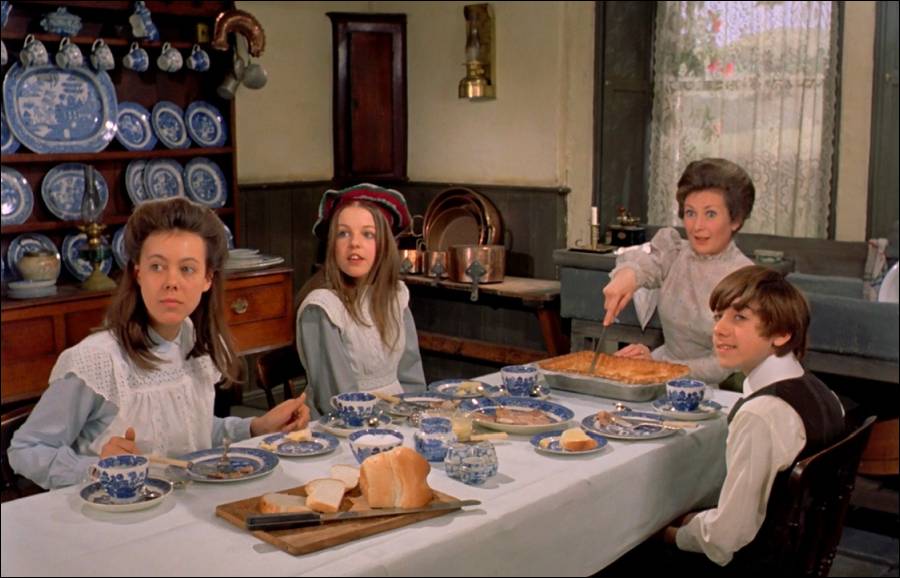Taglines: What’s the unexpected secret that turns their world upside down?
The Railway Children opens in a happy, comfortable upper middle-class home in Edwardian London. One night in 1905, the three children see their father usher two strangers into his study. After an argument he leaves with them and does not return. They and their mother fall on hard times and eventually move to a cottage in the country. Yet they keep their spirits up and find ways to help others. Fascinated by the nearby railway, they wave to the passengers faithfully every day, and their vigilance and courage prevent an accident. Their kindness makes friends of some important people who can help solve the mystery of their missing father.
The Railway Children is a 1970 British drama film based on the 1906 novel of the same name by E. Nesbit. The film was directed by Lionel Jeffries, and stars Dinah Sheridan, Jenny Agutter (who had earlier featured in the successful BBC’s 1968 dramatisation of the novel), Sally Thomsett and Bernard Cribbins in leading roles. The film was released to cinemas in the United Kingdom on 21 December 1970.
The film rights were bought by Jeffries. It was his directorial debut, and he was also responsible for writing the screenplay for the film. The Railway Children turned out to be a critical success, both at the time of its release, and in later years.
The film was the ninth most popular movie at the British box office in 1971 and recouped its cost in that country alone. It was one of the few financial successes of Bryan Forbes’ regime at EMI Films. By June 1972 it had earned EMI a profit of £52,000.
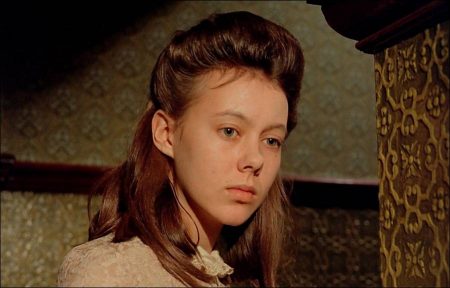
About the Story
The Waterburys are an affluent family who live in a luxurious Edwardian villa in the suburbs of London. Charles Waterbury, the patriarch, works at the Foreign and Commonwealth Office. He is arrested on suspicion of being a spy. This is hidden from the rest of the family by his wife. The family become impoverished, and are forced to move to a house called “Three Chimneys” in Yorkshire, which is near Oakworth railway station.
When they arrive, they find the house In a mess and rat-infested. The three children, Roberta (known by her nickname Bobbie), Phyllis, and Peter find amusement in watching the trains on the nearby railway line and waving to the passengers. They become friends with Albert Perks, the station porter, and with an elderly gentleman who regularly takes the 9:15 train. To make ends meet, their mother works as a writer, and also home schools the children.
Mrs. Waterbury falls ill with the flu. Bobbie writes to the gentleman who delivers food and medicine to the house to help their mother get better. They are admonished by their mother for telling others of their plight, and asking for assistance. The following day, a man is found at the railway station. He speaks a language that no-one can understand.
The children figure out that he can speak French which their mother is fluent in. Mrs. Waterbury discovers that the man is an exiled Russian writer who has arrived in England to find his family who had fled there. He stays with them at their house. Bobbie writes another letter to the gentleman asking him to help in finding the exile’s family, who are soon found.
One day while watching the railway tracks they notice that there has been a landslide which has partially obstructed the tracks. The children fashion their red petticoats into flags which they use to warn the driver of the impending danger. The train stops due to their warning. The railway company and villagers hold a party for the children and thank them for their actions. The children are given personalised engraved watches, and are dubbed “The Railway Children”.
The children find out that Mr. Perks, the station porter, doesn’t celebrate his birthday. They secretly ask for gifts from the villagers that he has helped in the past, and deliver the gifts to his house. Mr. Perks initially refuses the gifts as he doesn’t accept charity. However after the children explain that the gifts are from people that he has helped over the years, he thanks them for their kindness.
In return the following day, he delivers old newspapers and magazines for them to read. Bobbie reads one of the newspapers and notices a story about their father being imprisoned. She discusses this with her mother who finally discloses that their father is in prison after having been falsely convicted of being a spy and selling state secrets. She speculates that a jealous colleague of his may be behind it. Bobbie again contacts the gentleman and asks him to help her father.
A group of youths are playing a game of paper chase which the children observe. One of the boys injures his leg in a railway tunnel, and is helped by the children. He is taken to their house where he recuperates from his injuries. The gentleman visits their house and reveals that the boy is his grandson, Jim, and thanks the family for looking after him.
Jim and Bobbie grow close during his recuperation and promise to write to each other when he departs to his home. Bobbie arrives at the railway station. She runs to greet her father who has just alighted onto the platform after being exonerated and released from prison. They return to “Three Chimneys” and the family are reunited.
The Railway Children (1970)
Directed by: Lionel Jeffries
Starring: Jenny Agutter, Gary Warren, Sally Thomsett, Dinah Sheridan, Bernard Cribbins, William Mervyn, Ann Lancaster, Gordon Whiting, Beatrix Mackey, Deddie Davies, Brenda Cowling
Screenplay by: Lionel Jeffries
Cinematography by: Arthur Ibbetson
Film Editing by: Teddy Darvas
Art Direction by: John Clark
Makeup Department: Jock Alexander, Helen Lennox
Music by: Johnny Douglas
MPAA Rating: None.
Distributed by: MGM-EMI (UK), Universal Pictures (USA)
Release Date: December 21, 1970
Views: 648
